The ultimate getaway: Wellness retreats take off in the Middle East
From advanced diagnostics to traditional therapies, luxury wellness retreats are dominating the checklists of Gulf travellers.



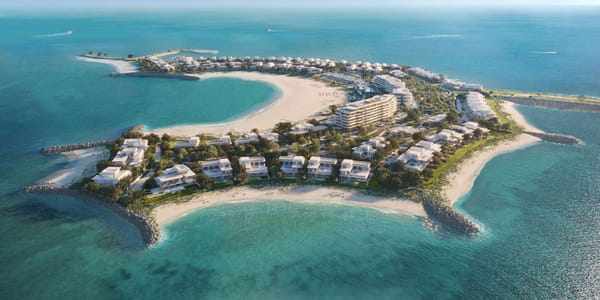
From advanced diagnostics to traditional therapies, luxury wellness retreats are dominating the checklists of Gulf travellers.

A massive development is underway in Abu Dhabi. Surrounded by lush greenery and the glistening Arabian Sea, SHA Emirates Island is set to become “the world’s first healthy living island” in 2026.
Developed by Spanish wellness brand SHA and Abu Dhabi-based real estate developer IMKAN, the luxury property promises a peaceful oasis away from the city. The SHA Wellness Clinic will house over 100 cabins — providing everything from advanced diagnostics to various high-tech and traditional therapies — while separate pavilions will be dedicated to sports, meditation, nutrition, and other health-optimising activities.
This project is just one example of the boom in wellness properties around the Gulf. From Saudi Arabia’s Amaala to SIRO One Za’abeel’s debut in Dubai, the Middle East is quickly becoming synonymous with luxury wellness travel.
Valued at over $19 billion, the Middle East North Africa region is the world’s fastest-growing wellness tourism market, largely driven by the UAE’s 16.5% annual growth (2019–2023), according to the Global Wellness Institute. Backed by government initiatives and private investment, it offers strong potential to those who can capture its rapidly evolving trends.
According to Beth McGroarty, VP of research at the Global Wellness Institute, destinations that have a “medical-meets-wellness focus” on longevity and healthspan are fast becoming a major trend in the Middle East.
“The GCC has a big opportunity in the booming longevity and healthspan space, with clinics and resorts that offer advanced diagnostic testing (biomarker, genetic, hormonal, full-body MRIs, etc.) to identify issues before they become problems and that set personalised health regimes for each client,” McGroarty said. “One future opportunity is to make preventive medical-wellness and longevity solutions a brand identity for the region.”
One player doing just that is SIRO. In February 2024, the hospitality brand owned by Kerzner International unveiled Dubai’s first fitness and recovery hotel, SIRO One Za’abeel, which focuses on five biohacking pillars: nutrition, fitness, sleep, recovery, and mindfulness.
Guest rooms are equipped with exercise essentials, thermo-regulating mattresses, and healthy snacks. The Recovery Lab features cutting-edge treatments, including IV therapy, red light therapy, sound and vibration therapy, and cryotherapy.
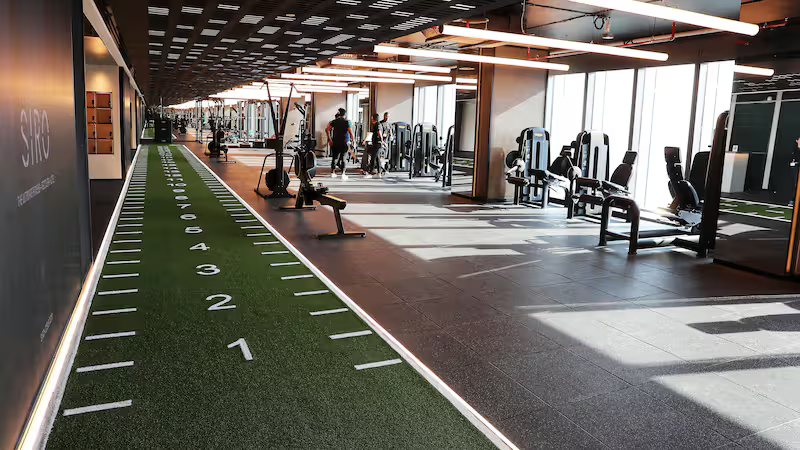
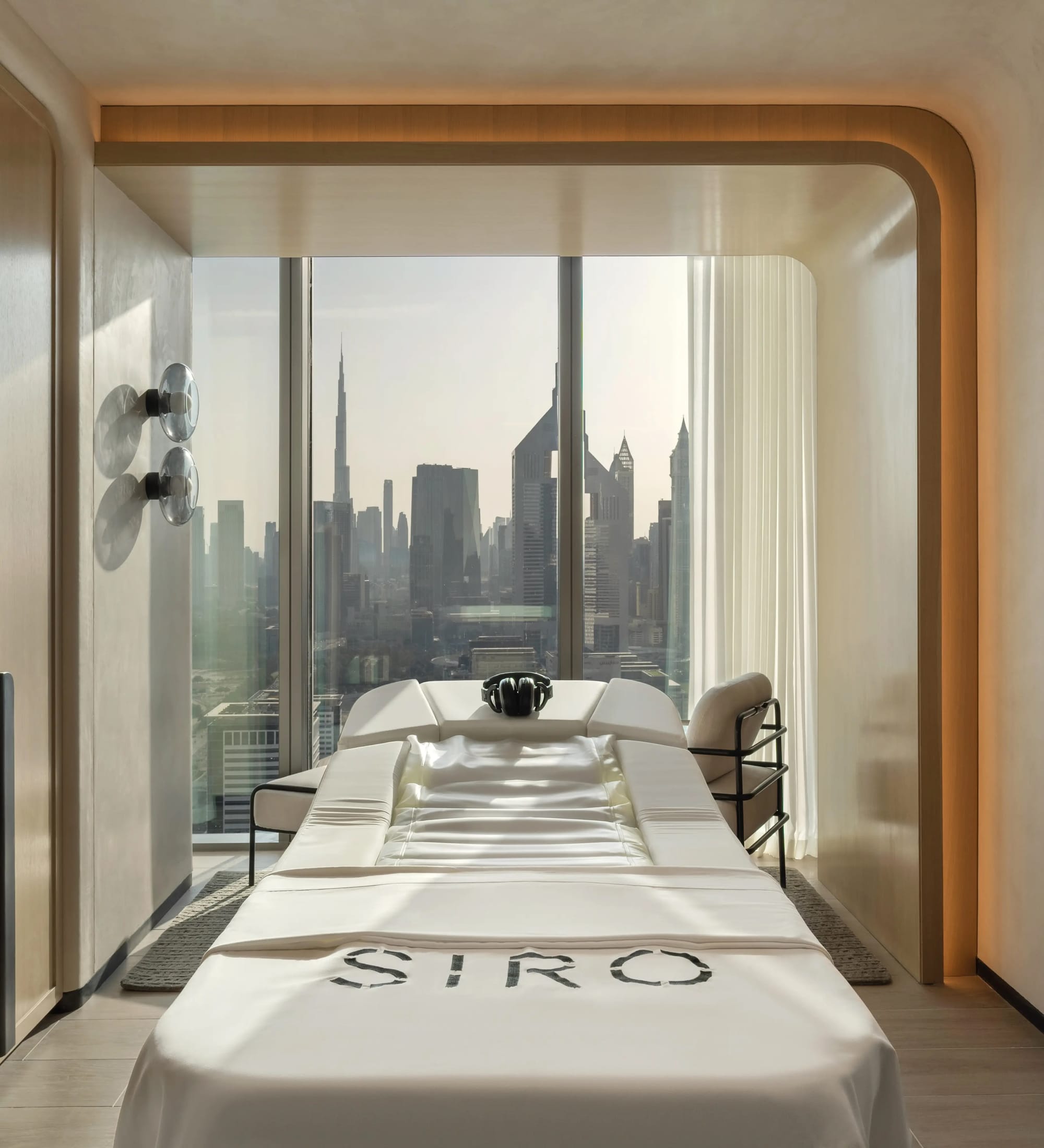
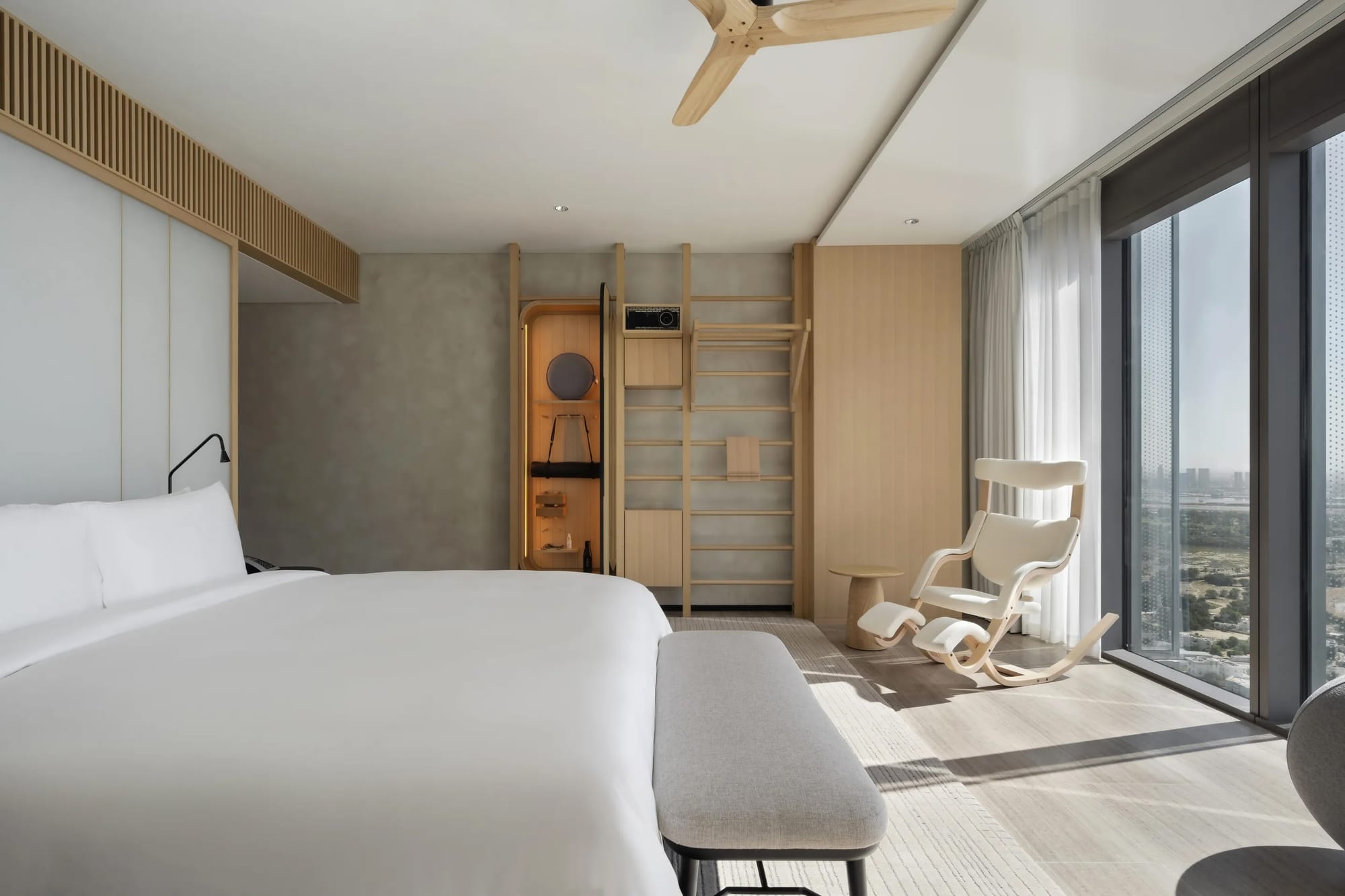
Developed by Kerzner International, SIRO One Za’abeel is Dubai’s first hotel dedicated to fitness and recovery. Image: SIRO
“Those who take wellbeing to be [a] lifestyle, who don’t look at a diet as something you ‘go on,’ understand that this journey must be one that looks at mind-body health holistically and has measurable, science-endorsed methods and outcomes,” said Mattheos Georgiou, senior VP of SIRO.
“Technology has afforded us greater access to what is going on at any given time in our own bodies than ever before. At SIRO, we’re pairing that data with human expertise: Master Trainers, partnerships with AC Milan and our Team SIRO ambassadors, as well as nutritionists, mindfulness coaching, and recovery specialists,” he added, noting plans to expand to Riyadh, Saudi Arabia, in the near future.
However, regional consumers aren’t just looking for tech-savvy treatments — they’re also looking for experiences rooted in culture, community, and nature. The anti-tech and analogue.
At Zulal, Qatar’s first full-immersion wellness resort, guests can find a unique mix of modern wellness practices and Traditional Arabic and Islamic Medicine (TAIM). Services include hijama, a cupping therapy that promotes blood flow, and the traditional Qatari Hamiz, a deep tissue massage using Arabic medicinal herbs. There’s even a library, apothecary, and teahouse for those who want to dive headfirst into the world of Arabic herbal remedies.
“Developers need to remember that wellness consumers are ever hungry for new, indigenous wellness traditions to explore,” said McGroarty. “The Middle East’s ancient traditions, such as Traditional Arabic Medicine, have been too long under the radar."
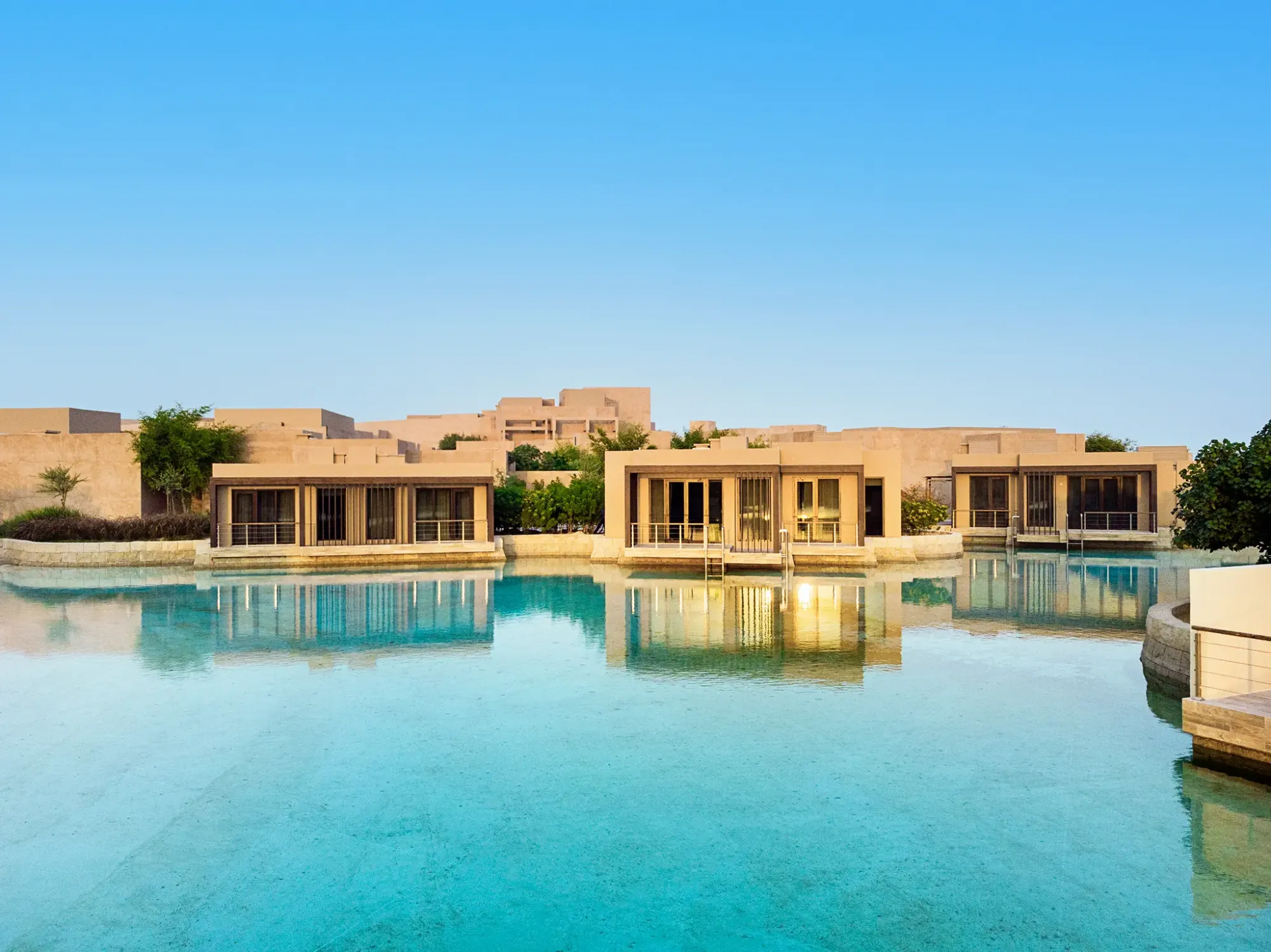
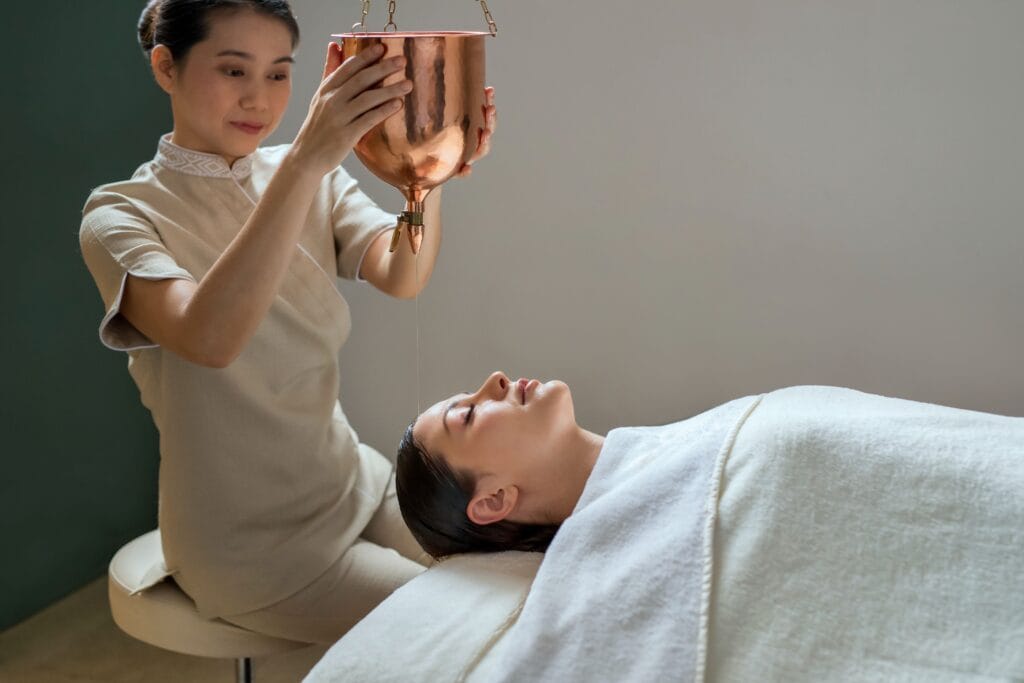
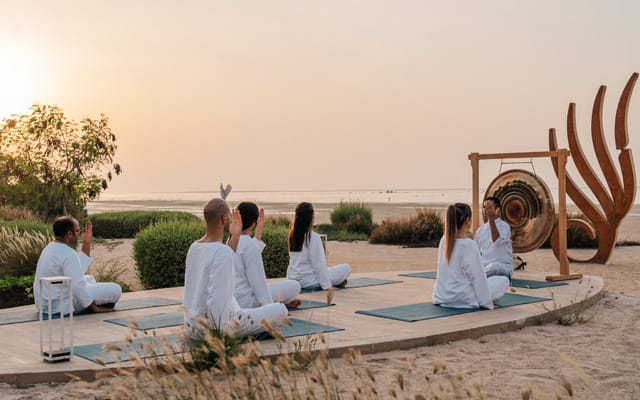
Zulal Wellness Resort by Thailand’s Chiva-Som combines Traditional Arabic and Islamic Medicine (TAIM) with modern healing practices. Image: Zulal
"There is a big opportunity for the region to promote its extraordinary food-as-medicine cuisine, its unique beauty traditions, its many indigenous wellness experiences, and its natural beauty for adventure tourism, to a curious world.” - Beth McGroarty, VP of research at the Global Wellness Institute
Wellness isn’t just bolstering the Middle East’s tourism — it’s becoming the new norm for high-net-worth individuals. As Georgiou put it, “Opulence or indulgence are not the sole benchmarks they once were. Now, it is all about how effectively a destination supports your ability to feel, move, rest, and live better.”
These shifting consumer preferences have opened up new avenues for investment. Wellness real estate in the Middle East is one to watch, notes McGroarty, with the market growing 22.6% annually from 2019 to 2024. Abu Dhabi’s Fahid Island, for instance, recorded an impressive AED 3.5 billion ($953 million) in luxury home sales just a week after its launch in June, signalling a strong appetite for health-focused living.
With Gulf governments making public health a key part of their national strategies, McGroarty expects public-private investments to “mean more of everything: wellness travel destinations, medical-wellness clinics and resorts, and preventative public health interventions.”
Global brands now have the opportunity to create not just places of pause, but sanctuaries for personal transformation. “This is the future of hospitality — personal, impactful, and restorative,” Georgiou concluded.